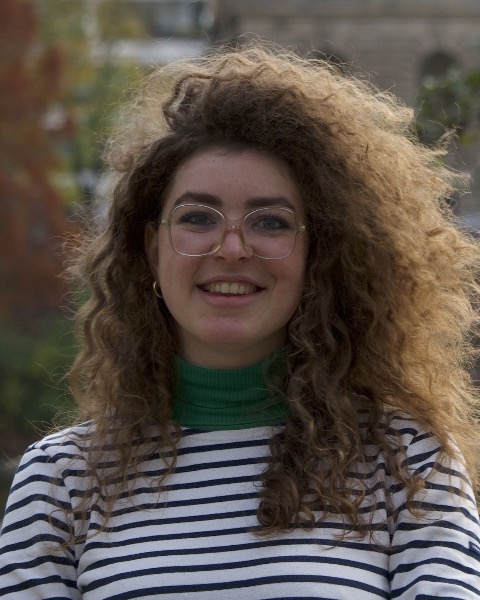Gene therapies and gene editing
Precision Medicine
Paper Session J4
Key stakeholders’ moral attitudes on somatic gene editing for inherited cardiomyopathy: a qualitative interview study
Wednesday, June 12, 2024
3:30 PM - 5:00 PM ET
Location: Hub 1

Jannieke Simons, MA (she/her/hers)
PhD student
University Medical Center Utrecht (Netherlands)
Speaker(s)
Introduction: This paper aims to unravel the array of moral attitudes among key stakeholders engaged in or affected by the development and potential future implementation of somatic gene editing therapy for inherited cardiomyopathy. Given the early stage of therapy development, now is the right time for critical appraisal of, amendments and adaptations to these advancements, steering away from mere end-of-development-pipeline reflections.
Method: We expect to conduct approximately 40 semi-structured in-depth interviews with stakeholders residing in the Netherlands, Belgium, and the United Kingdom, categorized into five groups: patients and carriers (“users”), bench researchers (“developers”); cardiologists (“providers”); pharmaceutical industry personnel (“suppliers”); and public health officials (“regulators”). Interviews explore the desirability of somatic gene editing therapy for inherited cardiomyopathy, conditions and considerations for potential first-in-human trials, and perspectives on fair access to potential future treatment. Thematic analysis identified recurring patterns and higher order themes through iterative refinement by constant comparison.
Results: Preliminary findings provide a nuanced understanding of the ethical landscape surrounding somatic gene editing therapy for inherited cardiomyopathy. Also, this study illuminates both shared and distinct underlying values among the identified stakeholder groups.
Conclusion: This qualitative in-depth interview study informs further therapy development, first-in-human trial design, and clinical implementation of a somatic gene editing therapy for inherited cardiomyopathy. Insights from this study will contribute to navigating ethical questions in the ever-evolving realm of genomics research.
Author: Jannieke Simons, University Medical Center Utrecht
Method: We expect to conduct approximately 40 semi-structured in-depth interviews with stakeholders residing in the Netherlands, Belgium, and the United Kingdom, categorized into five groups: patients and carriers (“users”), bench researchers (“developers”); cardiologists (“providers”); pharmaceutical industry personnel (“suppliers”); and public health officials (“regulators”). Interviews explore the desirability of somatic gene editing therapy for inherited cardiomyopathy, conditions and considerations for potential first-in-human trials, and perspectives on fair access to potential future treatment. Thematic analysis identified recurring patterns and higher order themes through iterative refinement by constant comparison.
Results: Preliminary findings provide a nuanced understanding of the ethical landscape surrounding somatic gene editing therapy for inherited cardiomyopathy. Also, this study illuminates both shared and distinct underlying values among the identified stakeholder groups.
Conclusion: This qualitative in-depth interview study informs further therapy development, first-in-human trial design, and clinical implementation of a somatic gene editing therapy for inherited cardiomyopathy. Insights from this study will contribute to navigating ethical questions in the ever-evolving realm of genomics research.
Author: Jannieke Simons, University Medical Center Utrecht